History of the Universe as Told by Wonder Woman
The inaugural Geek Girl Con was a fabulous experience. A lot of the highlights already have been immortalized on Twitter and blogs recaps, and as I reminisced on all those experiences I found that I wanted to write about how one particular panel made me feel. The “History of the Universe as Told by Wonder Woman” panel wasn’t originally on my to-do list, but after I realized that my sister’s departure would conflict with the “Ink-Stained Amazon and Cinematic Warriors” panel I had to rethink my plan. I couldn’t go to the first geek girl convention and not see panelists discuss Wonder Woman.
Although I read comics books occasionally, I am not what you’d call an aficionado. Most of my time spent with Wonder Woman harks back to the 1970s, when I watched Lynda Carter’s version on television. 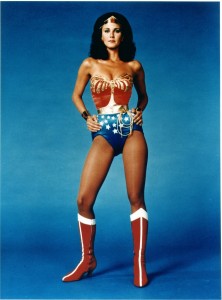 From time to time since then, I’ve picked up a comic book or found something interesting about her on the internet. The stories DC Comics seemed to be telling about her, though, lost my interest. Or maybe I had just grown up?
From time to time since then, I’ve picked up a comic book or found something interesting about her on the internet. The stories DC Comics seemed to be telling about her, though, lost my interest. Or maybe I had just grown up?
When I started my blog a year ago with one of my primary goals being to address the lack of equivalence in the portrayal of female characters, I found myself thinking a lot about Wonder Woman and her role as a heroic icon in my life. As I read more about the sociological evidence that the media – factual and fictional – affects how young women feel about themselves, I reflected on what Lynda Carter’s Wonder Woman meant to me as a child. She made me smile, she made me believe a woman could do anything, and most importantly she made me feel like I could do anything, even overcome seemingly insurmountable obstacles. Now, as a critical observer of genre storytelling, it seems to me that the inability to bring superheroines to the forefront of movies, television, and print is intricately tied to the plight of Wonder Woman. The more I researched the far and recent history of Wonder Woman, the more I realized many other people were coming to a similar conclusion.
The History of the Universe as Told by Wonder Woman is an upcoming documentary directed by Kristy Guevara-Flanagan. Sitting on the panel beside her were notable Wonder Woman experts including Mike Madrid (The Supergirls), Trina Robbins (The Brinkley Girls, Honey West), Gail Simone (Wonder Woman, Batgirl, Birds of Prey), and Jennifer K. Stuller (Ink-Stained Amazons & Cinematic Warriors). The panel was set for 90 minutes; it could have gone 190 minutes as far as most of us in the room were concerned. A disappointed sigh rose from the audience when we were asked to move on to make way for the next panel. Still, I think the most important part of the panel’s agenda had been covered.
Foremost, the audience members got to see a sneak peek at the documentary. Kristy is a brave woman, allowing her work-in-progress to be viewed in the rough. Then again, I think she knew she was among friends and supporters. When I tore my eyes away from the screen, I noticed her taking quick notes of particular audience reactions. What she heard was laughter at the humor in some moments, and the giddy ah’s as people connected with a moment such as Lynda Carter’s unforgettable twirl. This was a room filled to the brim with women and men who had been inspired by the embodiment of – to borrow the three words of Trina Robbins – the Amazon princess goddess.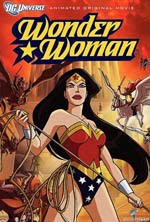
The most profound moment for me in the preview came from the perspective of a fourth-grader, who relates what Wonder Woman means to her. The incredibly simplified perceptions of a child can cut to the core of what makes us tick as human beings. I am three decades removed from that young lady in age, but in a second, watching her, I was transported back to my youth. Major movie and television producers have failed in recent years to capture the magic of Wonder Woman’s story despite the fact that she is held in the minds of many as one of DC’s big three alongside Superman and Batman – both of whom have multiple bigscreen and television incarnations. Watching the documentary unfold and seeing the awe inspired by Wonder Woman – not just in a child, but many others – it’s almost tragic that she hasn’t been given the same chance.
The documentary doesn’t just focus on Wonder Woman, though. It gives a historical accounting of the roles women have been given as strong characters. Shows like The Bionic Woman and Charlie’s Angels were featured. Insightful interviews with Lynda Carter and Lindsay Wagner reinforced my theory that the actress is just as important as the character. None of those shows were perfect in their portrayals for women, but where we’ve gone since then hasn’t exactly been uphill. As discussed in the documentary, Ripley (Aliens) and Sarah Connor (Terminator 2), while strong and powerful, were stripped of their femininity. More recently the trend has been to turn superheroines into sacrificial tokens of a superhero’s evolution.
Superheroines who have been sacrificed for the heroic cause: Trinity (Matrix Revolutions), Elektra (Daredevil), Mara (Star Wars: Legacy of the Force) Jean Grey (X-Men: The Last Stand), Valerious (Van Helsing)
Several things need to happen before the fate of our favorite superheroines will change for the better. First, we need more documentaries and introspective pieces like Kristy’s. Then they need to be screened in writers’ rooms, in front of movie and television executives, and on television for everyone to watch. Panel moderator Maile Martinez, through her organization Reel Grrls, is taking a more grass-roots approach to tackling the inequity in roles and creative careers in the entertainment industry by teaching girls the technical skills of media production. Ultimately, I think it will be a woman behind the inevitable Wonder Woman blockbuster. Maybe it will be one of these aspiring writer/directors from Reel Grrls?
Between watching the aspirations of a fourth-grader and viewing the achievements of young women being taught the trade, this panel reminded me how important our inner child is. While the young ladies of the documentary woke old emotions that sometimes we lose touch with as adults, it was the panelists, each of whom contributed to the documentary in some way, who inspired me. Not to take away from Mike’s input, but these women have made such a difference toward positive change in the portrayal of female characters by speaking their mind, educating women, and following their hearts. Ultimately their passion has and will encourage more women to believe that they too can make a difference. Most importantly, though, I walked out of that room realizing I’m not alone.
If you’re a geek girl, I think you get that.
Change will come, but it never happens without each of us realizing the superheroine within. If you’d like to make a difference, take the time to support some of these fabulous panelists.
- History of the Universe as Told by Wonder Woman
- Reelgrrls
- Gail Simone
- Jennifer K. Stuller’s Ink-Stained Amazon
- Mike Madrid’s Heaven 4 Heroes
- Trina Robbins
- Hyperspace Theories: Bad Luck Ghorman - June 2, 2025
- Hyperspace Theories: One Year Later as ANDOR Kicks Off Season Two - May 15, 2025
- REVIEW: Tales of the Underworld - May 4, 2025








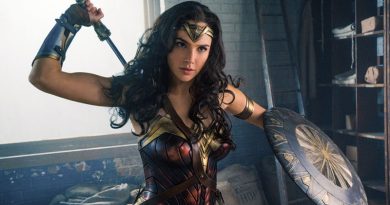
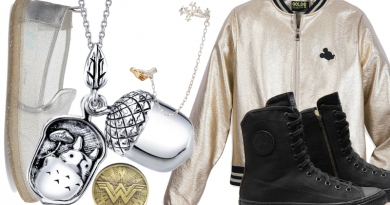
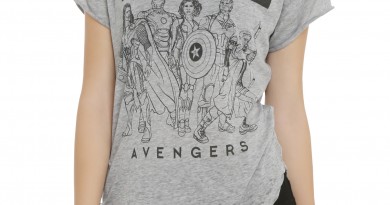
As ever, I find myself wondering: WHICH Wonder Woman? There are so many now. Pre and post-Crisis; Marston and Perez; post Infinite Crisis; the Azarello version; the various Elseworlds versions. All variations on a theme, but definitely different enough from each other by POV, mission statement, and approach to feminist empowerment. I look forward to seeing how this is tackled in the documentary!
>>Shows like The Bionic Woman and Charlie’s Angels were featured. Insightful interviews with Lynda Carter and Lindsay Wagner reinforced my theory that the actress is just as important as the character. None of those shows were perfect in their portrayals for women, but where we’ve gone since then hasn’t exactly been uphill. As discussed in the documentary, Ripley (Aliens) and Sarah Connor (Terminator 2), while strong and powerful, were stripped of their femininity.<<
Bravo. Yes, yes, and yes. :) Can't wait to read more. :)
I really like your blog and think the articles are very well-written and often insightful. However, I’ve read a lot of statements here that seem to be labeling what is and isn’t feminine as opposed to accepting certain kinds of female characters. In what way was Ripley “stripped of her femininity”? One doesn’t have to wear pink or reject pants to be “feminine”. Ripley is female. She isn’t just a love subplot, she defeats the bad guy, and she did it at a time when female heroes were rare. I think that’s a “strong female character” if anything is. Would it be better if she had flowing hair and skin-tight outfits like Mara Jade or Wonder Woman? I’m not trying to hate on Wonder Woman, and I’m not trying to be the “woman telling [a bikini-clad cosplayer] she’s undermining women” that you mention in your Slave Leia article. I’m just a little confused.
Thanks, Phil!
Cy, I can see how that might be a bit confusing so thanks for asking. The discussion of Ripley and Sarah Connor and their lack of femininity is part of the documentary. I don’t see that as an indictment of their characters – in fact, they both blew my mind and I am a fan of both of them. They were definitely part of a movement in the industry that was still trying to find the “pulse” of portraying heroines. Muscles don’t necessarily make a character stronger; how they both behaved was the measure of their strength. So no I don’t think it would be better if Ripley had flowing hair; she is what she is. There is room for a variety of female heroic characters for sure.
Thanks for the reply, Tricia: that does clarify it. :)
Pingback:Our panel at Geek Girl Con! « The History Of The Universe As Told By Wonder Woman
Just heard about the documentary and watched the trailer. It’s not so much about superheroines,
really. There are tons of superheroines in comics that aren’t mentioned in the film: Kitty Pryde was inspiring to a lot of young women, for example. It’s more about the progress of feminism through society and pop culture, using the portrayal of superheroines as a barometer. There’s an obvious politically correct attempt at inclusivity through the use of minority voices: gay, Hispanic, etc. I’m a little disappointed that the movie didn’t try to interview the first female publisher of DC Comics, Jenette Kahn, who led the company through a revitalizing period through three decades and could have shed expert light on the viability of female characters. But that’s probably because it’s a third-wave feminist film more than an accurate chronicle of superheroines.
Yes, it is a shame that a Wonder Woman film or TV reboot never came to fruition. But I think it
has little to do with lack of saleability of female characters. After all, there were a lot of
superhero TV shows that flopped, like The Flash, Spider-Man or that horrible Justice League
pilot. And yet nowadays, TV shows have tons of strong female leads – I can sit back and watch
the likes of Poppy Montgomery, Kyra Sedgwick, Cote De Pablo, Archie Punjabi and many more
kick major ass. There were also strong female characters on sci-fi series including Terra Nova, Battlestar Galactica, the rebooted V, and Heroes, etc., and there are many more on kids’ cartoon shows. So if a certain superheroine like Wonder Woman doesn’t work on the screen, it’s because the treatment of the character is terrible and the writing and approach are atrocious, not because people won’t accept a female lead. It’s just bad luck and stupidity in the industry. Not some kind of anti-feminist conspiracy.
Not saying that it’s an anti-feminist conspiracy – and will agree probably poor decisionmaking on the story design helped – but it’s certainly fair to say that Hollywood hedges on betting on female-centric stories.
My take on this documentary is about finding what inspires the superheroine in each of us. I’m excited to get my copy since I supported it on Kickstarter.